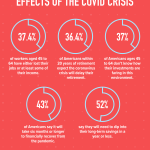The age-old adage “take advantage of compound interest” rings particularly true when it comes to retirement savings accounts like 401(k)s. With the power of time, a small investment can grow into a substantial nest egg over the years. However, life often has other plans, and you might find yourself facing unexpected expenses or financial emergencies that prompt an early withdrawal from your 401(k) account.
Understanding Early Withdrawal Consequences: A Guide
In this post, we’ll delve into the world of 401(k) taxes and explore the consequences of taking an early withdrawal. Whether you’re facing a financial emergency or simply want to understand the rules surrounding your retirement savings, this guide aims to provide clarity on the subject.
Why Early Withdrawal Consequences Matter
It’s essential to understand that 401(k) accounts are designed to help you save for retirement, not as a readily accessible source of funds. Taking an early withdrawal can have long-term implications on your financial well-being and potentially derail your retirement plans. By grasping the consequences of early withdrawal, you’ll be better equipped to make informed decisions about your retirement savings.
The First Key Point: 10% Penalty
One of the most significant consequences of an early 401(k) withdrawal is the 10% penalty imposed by the IRS. This penalty applies to withdrawals made before age 59 1/2, unless you meet specific exceptions such as a qualified separation from service or a disability.
The 10% penalty might seem like a minor hurdle, but when combined with the taxes owed on your withdrawal, it can significantly erode the value of your retirement savings. For example, let’s say you withdraw $20,000 from your 401(k) account and pay a 10% penalty – that’s $2,000 gone instantly! Not to mention the additional income tax you’ll owe on the withdrawn amount.
This is just the tip of the iceberg when it comes to understanding early withdrawal consequences. In the next section, we’ll explore more details about the penalties and taxes associated with 401(k) withdrawals, as well as strategies for minimizing their impact.
To continue our exploration of early withdrawal consequences, let’s dive into another crucial aspect: the tax implications.
The Second Key Point: Taxes Owed on Withdrawal
In addition to the 10% penalty, you’ll also need to consider the taxes owed on your withdrawn funds. Since a 401(k) account is funded with pre-tax dollars, the IRS views withdrawals as ordinary income, subject to federal and state income tax rates.
For instance, if you’re in the 24% federal income tax bracket and withdraw $20,000 from your 401(k), you’ll owe approximately $4,800 in taxes. This amount can vary depending on your individual circumstances, such as your income level, filing status, and state of residence.
It’s essential to remember that taxes owed on a withdrawal will be taken out at the time of distribution, reducing the actual amount you receive. In our previous example, if you withdraw $20,000 and owe $4,800 in taxes, your take-home amount would be approximately $15,200.
Strategies for Minimizing Tax Impact
While it’s impossible to completely avoid tax implications when taking an early withdrawal, there are a few strategies you can employ to minimize their impact:
- Consult IRS Publication 4020, which provides detailed guidance on 401(k) and IRA withdrawals.
- Consider rolling over your withdrawal into an IRA or another qualified retirement plan, potentially delaying taxes until you’re in a lower tax bracket during retirement. However, be aware that this option might have its own set of rules and limitations.
As we continue to explore the consequences of early 401(k) withdrawals, it’s crucial to recognize that each situation is unique. In the next section, we’ll delve into additional factors to consider when deciding whether to take an early withdrawal from your retirement account.
Stay tuned for our upcoming posts, where we’ll discuss strategies for navigating these complexities and making informed decisions about your retirement savings.
Expert Guidance for Your Retirement Planning
Get expert advice on managing your 401k and retirement savings.
Consult a Financial ExpertIn conclusion, it’s crucial to understand the consequences of taking an early withdrawal from your 401(k) account. The 10% penalty imposed by the IRS is just the beginning – you’ll also need to consider the taxes owed on the withdrawn amount, which can significantly erode the value of your retirement savings.
Before making a decision, take a step back and assess your financial situation. Are there other options available to you that won’t trigger these penalties? Could you consider taking out a personal loan or using a credit card with a low interest rate instead?
If an early withdrawal is unavoidable, make sure to explore the exceptions to the 10% penalty rule. For example, if you’re facing a qualified separation from service or are disabled, you might be eligible for a penalty-free withdrawal.
Remember, your 401(k) account is designed to help you save for retirement, not as a readily accessible source of funds. By understanding the consequences of early withdrawal and exploring alternative options, you can avoid derailing your retirement plans and ensure a more secure financial future.
Symptoms of fatty liver due to alcohol consumption: Are you a heavy drinker? It’s crucial to know the signs of fatty liver, which can occur even if you don’t have obvious symptoms. Discover what to look out for and how to prevent damage to your liver.
2 week old puppy a bloated condition: Is your new furry friend experiencing gas and discomfort? Don’t worry, it’s normal! Learn how to identify the signs of bloat in young puppies and what you can do to help your little one feel more comfortable.


